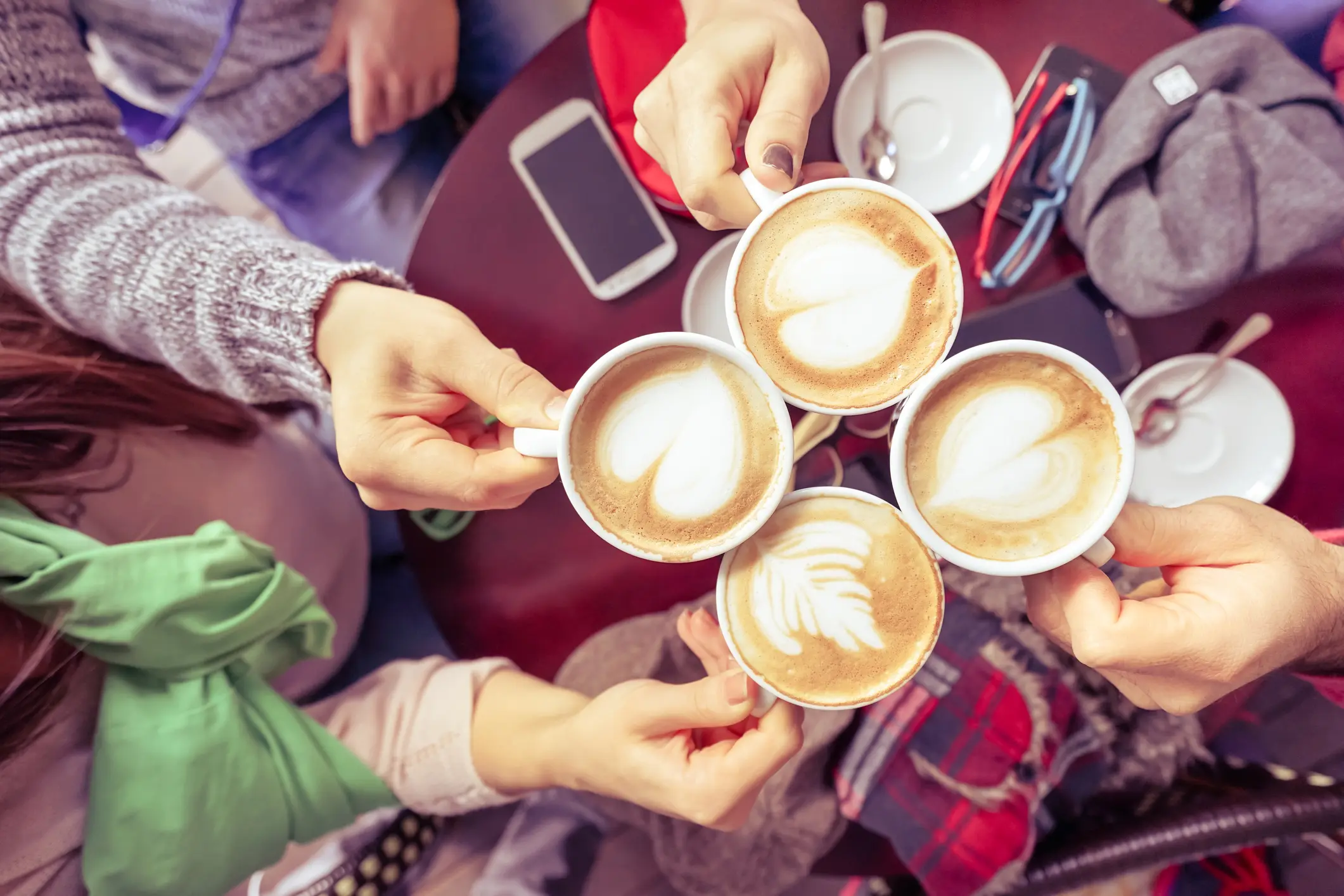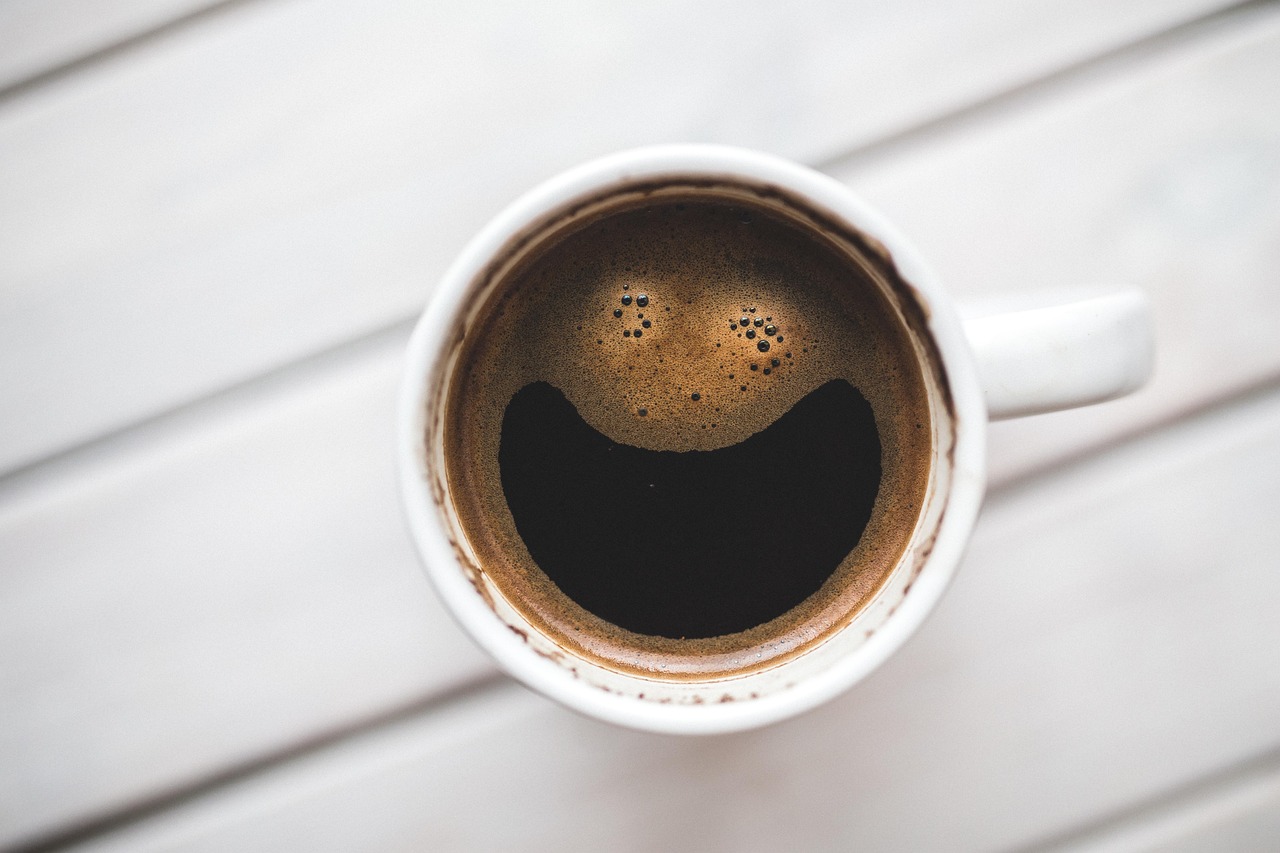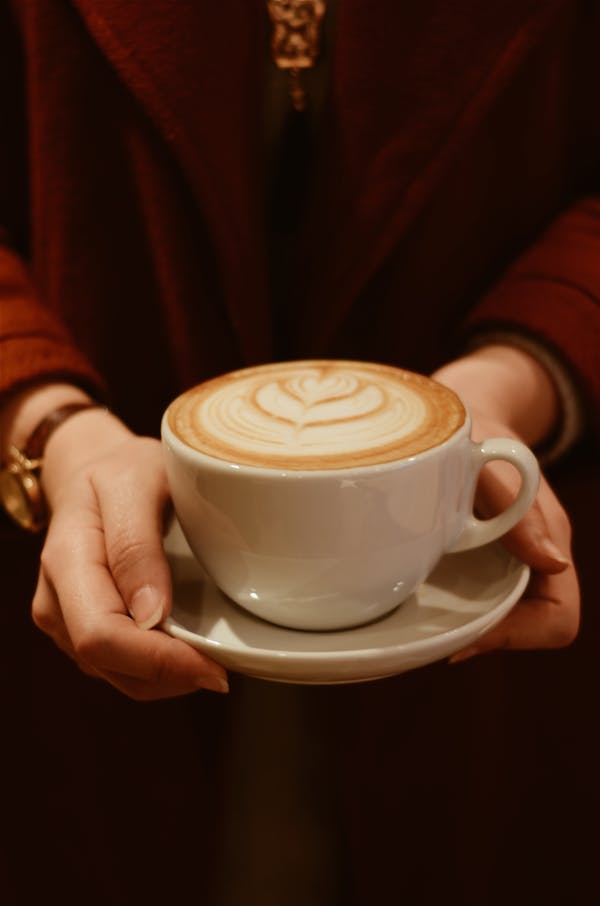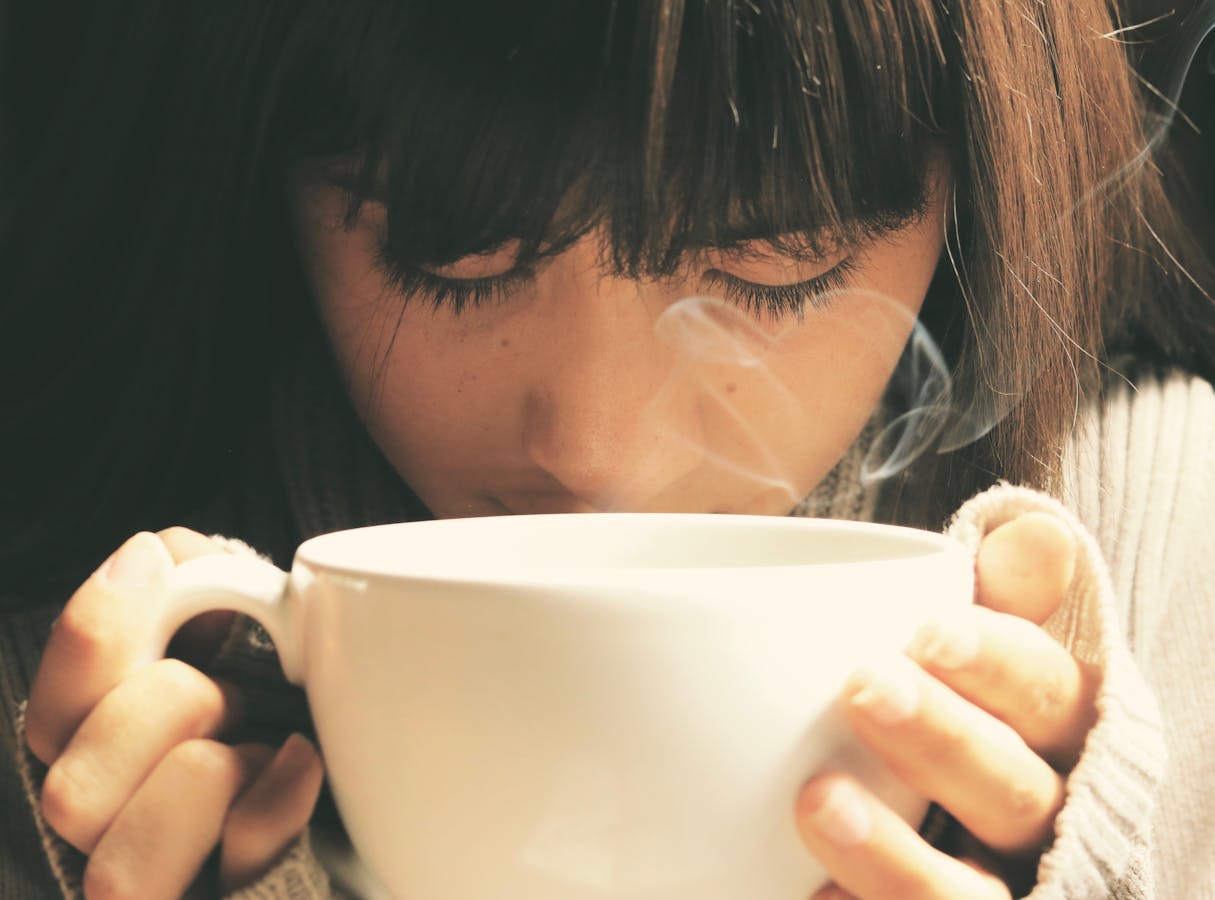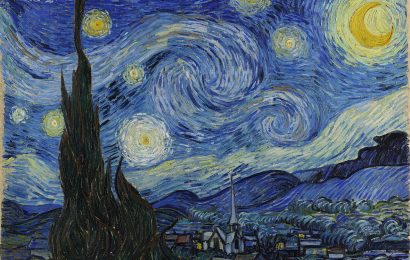Published just in time for International Coffee Day, here’s what science reveals about how coffee and morning routines affect mental health.
Why Mornings Matter
How you start your day often determines how the rest of it unfolds. We all know the feeling of waking up rushed, grabbing whatever’s available, and scrolling on our phone until the last possible second.
Compare that with a morning when you take time to stretch, enjoy a cup of coffee, maybe journal or meditate – and the difference is profound.
It’s not just anecdotal. A growing body of research suggests that morning routines play a crucial role in mental health, productivity, and overall wellbeing. And one star player keeps showing up in surveys and studies: coffee.
ID 65011342 ©Mirko Vitali | Dreamstime.com
New Insights: Coffee’s Role in Mental Wellness
On September 29, 2025, Nespresso released a survey in collaboration with the nonprofit Project Healthy Minds and Kantar research.
According to the findings, over 90% of Americans said their morning routine impacts their mental wellness for the rest of the day.
- 77% consider coffee a central part of that routine.
- 33% said it helps them kickstart focus and mental clarity.
- 25% reported it provides a moment of mindfulness before the day’s demands.
- Interestingly, 42% of respondents still spend their limited morning time scrolling on social media, compared with only 23% who meditate.
With 47% of Americans reporting increased anxiety in the past six months, the idea that coffee can offer a mindful pause – even just for a few minutes – resonates deeply.
If you want to discover how much coffee is healthy to drink during the day and how coffee can help you in many unexpected ways, read our previous comprehensive article on the topic.
What Other Studies Say About Coffee and Mental Health
While the Nespresso and Project Healthy Minds survey shines a light on how everyday people view their morning coffee ritual, it’s far from the only evidence that connects coffee to mental wellbeing.
Over the past decade, researchers around the world have been digging into the ways caffeine, coffee, and structured morning habits affect mood, cognition, and even long-term health outcomes.
From large population studies that track depression and mortality rates, to controlled trials looking at attention, focus, and resilience, the science paints a fascinating picture: coffee isn’t just a pick-me-up, it may play a deeper role in shaping how we feel and function each day.
Below are some of the most compelling findings that put the survey results into context.
Moderate coffee consumption may reduce depression risk. A meta-analysis in the Australian and New Zealand Journal of Psychiatry found that drinking 2–3 cups per day was linked to a lower risk of depression (PubMed). This is still a discussed topic – and if you have or suspect you have depression, you should immediately reach out to a doctor!
Coffee and cognitive performance. Research published suggests caffeine can improve alertness, attention, and reaction time – key benefits for setting the tone in the morning.
Here I have to add that I started drinking coffee at university and yes, I saw positive effects on concentration.
Coffee and longevity. A 2018 JAMA Internal Medicine study involving 500,000 people in the UK found that drinking coffee was associated with lower mortality risk (source).
Cautionary note: Too much caffeine can worsen anxiety or sleep issues. The FDA recommends no more than 400 mg of caffeine per day (about 4–5 cups of brewed coffee) for healthy adults.
Real-World Examples of Mindful Coffee Rituals
Coffee isn’t just a beverage – it’s a cultural ritual that has been shaping communities around the world for centuries. Looking at how different societies approach their morning cup reveals just how powerful the act of drinking coffee (or tea) can be for mindfulness and connection.
Italy: The Espresso Pause
In Italy, the morning espresso is more than caffeine – it’s a social anchor. Italians often take a few minutes at the bar to sip their tiny, potent shot of coffee, exchange a few words, and start the day with a sense of presence. It’s not rushed in a to-go cup, but enjoyed standing, focused, and intentional.
Japan: The Art of Tea as Ritual
While Japan is more associated with tea, its influence on mindful morning rituals is profound. The Japanese tea ceremony (chanoyu) is designed around slowing down, focusing on the present, and savoring each gesture. Even in modern life, taking time with tea – or increasingly coffee – reflects the idea that how you prepare your drink is as important as drinking it.
Turkey: Tradition in a Cup
Turkish coffee is famously strong, thick, and unfiltered – but it’s also deeply social. Families and friends gather over small cups, often paired with conversation or fortune-telling from the grounds left behind. The ritual is about connection, storytelling, and slowing down, rather than just stimulation.
Across cultures, these examples illustrate that coffee and tea rituals are anchors of mindfulness – tiny daily practices that ground people, reduce stress, and reinforce social bonds. For readers who love to travel, it’s a reminder that the morning ritual is both universal and deeply personal, transcending borders while reflecting local traditions.
ID 106196868 ©Antonio Guillem | Dreamstime.com
I have my own morning routine – it includes me waking up earlier than everyone in my family, making coffee, eating breakfast, and then enjoying my coffee – while doing something fun/relaxing or meditating.
Coffee, Longevity, and the Blue Zones Connection
Coffee and tea don’t just help us focus – they may also help us live longer. In the world’s famous Blue Zones – regions where people consistently live past 90 or even 100 – morning rituals around beverages are a shared habit.
Sardinia, Italy – Locals often start the day with coffee or herbal teas, paired with conversation and laughter.
Ikaria, Greece – Known for mountain herbal teas, coffee is also common. The ritual of slow mornings with community ties is credited with reduced stress and improved mental health.
Okinawa, Japan – While tea is more traditional here, the principle is the same: a calming morning drink shared with others fosters social connection and stress reduction, both linked to longevity.
According to Dan Buettner’s Blue Zones research, these small, repeated rituals act as protective lifestyle habits. They provide:
- Daily social connection (a known predictor of long life).
- Stress relief through mindful sipping.
- A consistent daily anchor that supports healthy routines around diet, sleep, and movement.
Epidemiological studies support this. For example, research found that coffee drinkers had a lower risk of early death, even when drinking up to 8 cups a day. The effect was consistent across ethnicities, pointing to coffee as one of those small, daily habits that add up to big differences in longevity.
In other words, when you pour your morning coffee, you’re not just fueling your brain for the next few hours – you may be investing in a longer, healthier life.
I admit, I see this as good news for me, as I love my morning coffee!
The Power of Morning Routines Beyond Coffee
While coffee plays a starring role, the science on morning routines as a whole is equally compelling.
Morning routines improve mental health
It turns out there’s science behind the idea that mornings “set the tone” for your entire day. A study covered by Psychiatrist.com found that people who maintain a structured morning routine report lower stress and anxiety levels throughout the rest of the day compared to those with unstructured or rushed mornings.
The researchers suggest that mornings act as a kind of emotional anchor: starting the day with predictable, intentional habits helps regulate mood and provides stability as the day’s pressures build.
This aligns with what many psychologists call the “primacy effect of mornings,” where the first part of the day sets cognitive and emotional expectations that carry forward. In practice, this means that something as simple as drinking coffee mindfully, taking a short walk, or journaling for five minutes in the morning doesn’t just make you feel good in the moment – it can have ripple effects, buffering you against stress later in the day.
Another related piece, “Daily Routine and Psychological Resilience”, argues that reinforcing regular patterns in one’s day (like morning rituals) can reduce stress and bolster emotional stability.
In short: routines help train your brain to expect stability and control, which in turn supports positive affect, lower anxiety, and better response to daily stressors.
Physical activity in the morning matters
Even a brief burst of movement can shift your mood for hours. In a controlled experiment published under “Experimental effects of brief, single bouts of walking and meditation”, researchers found that a 10-minute bout of brisk walking significantly improved some mood subscales (especially reducing fatigue/inertia) when compared to staying inactive.
Meanwhile, a 10-minute meditation bout had a broader effect, improving overall mood profile more strongly.
Thus, when woven into a morning routine, even a short walk or stretch session can provide measurable mood uplift, energy, and reduced anxiety throughout the day. It’s a low-cost, high-impact strategy for turning your morning into a psychological advantage.
Mindfulness in the morning boosts focus
Mindfulness and meditation have been studied extensively for their mental health benefits – I wrote an in-depth article on how meditation helps us live longer.
In a multi-arm randomized trial published in 2023 (Effects of Mindfulness Meditation Duration and Type on Mental Well-being), participants practiced either ~10 minutes or ~30 minutes of meditation (sitting or movement-based) over two weeks. The results showed notable improvements in mental well‐being and reduced psychological distress, especially among those doing shorter (~10 min) daily sessions.
Additionally, a different line of research (arXiv) tested a brief 10-minute meditation intervention and found improvements in attentional control – better response time and accuracy in a Stroop task – pointing to a cognitive boost even from short, daily practice.
Taken together, these findings suggest that inserting just a short mindful pause in the morning primes your brain for greater focus, less reactivity, and improved stress regulation.
Healthy Morning Habits to Pair with Coffee
If you want to optimize mornings for mental health, here are evidence-based steps you can take:
- Hydrate first. Drinking water before coffee helps offset caffeine’s mild diuretic effects and kickstarts hydration.
- Delay caffeine 30–60 minutes. Cortisol levels peak soon after waking; waiting can make your coffee more effective.
- Get sunlight. Morning light exposure supports circadian rhythm and boosts mood.
- Move your body. Even 5–10 minutes of stretching or yoga has measurable mental health benefits.
- Practice mindfulness. Use your coffee moment as meditation: savor the aroma, warmth, and taste before diving into screens.
- Avoid doomscrolling. As Nespresso’s survey noted, nearly half of Americans lose morning time to social media, linked to higher stress and distraction.
Generational Differences: Coffee Across Ages
The Nespresso survey also highlighted how habits differ by generation:
- Millennials (84%) and Gen Z (78%) are most likely to make coffee part of their mornings.
- Baby Boomers (53%) are more likely than Gen Z (25%) to call coffee a “habit.”
This aligns with broader lifestyle research showing younger generations prioritize “experience” and “ritual” around their routines, while older adults treat coffee more as tradition or necessity.
Balancing Coffee’s Benefits with Caution
While coffee is associated with many positives, there are caveats:
- Anxiety: For some people, caffeine can heighten feelings of jitteriness. If you notice this, try limiting intake or choosing decaf.
- Sleep: Consuming caffeine too late in the day (after 2–3 p.m.) can disrupt sleep cycles.
- Digestive issues: Coffee may irritate sensitive stomachs.
- Pregnancy: The American College of Obstetricians and Gynecologists recommends limiting caffeine to 200 mg/day or, better yet, eliminating it completely (most doctors recommend this).
Why Rituals Matter in a Fast-Paced World
The deeper insight here is less about caffeine and more about ritual. Whether it’s coffee, tea, or another practice, having a mindful anchor in the morning helps regulate mood and focus.
As Phil Schermer, CEO of Project Healthy Minds, put it in the press release:
“Turning coffee into a small daily ritual is a simple step anyone can take.”
Psychologists call these “keystone habits” – routines that set off a cascade of other healthy behaviors. If coffee helps you slow down, plan your day, or simply breathe, its role goes far beyond the caffeine buzz.
Key Takeaways
- 90% of Americans say their morning routine impacts mental wellness.
- Coffee is not just a drink – it’s a ritual linked to focus, mindfulness, and energy.
- Science backs up coffee’s role in reducing depression risk, boosting cognitive performance, and even longevity.
- Pairing coffee with hydration, sunlight, movement, and mindfulness builds a morning routine that truly supports mental health.
- Moderation is essential – too much caffeine can worsen anxiety and sleep problems.
Conclusion: Building Your Best Morning
You don’t need to overhaul your life to feel better in the morning. Start small: brew your favorite coffee, step outside for a few minutes of light, stretch or breathe deeply, and resist the urge to scroll.
The science is clear: mindful routines improve mental health. Coffee, when consumed in moderation, can be more than a stimulant – it can be a meaningful anchor in your day.
So tomorrow morning, before the emails, the news alerts, and the rush, take that mindful sip. Your brain – and your mood – will thank you.
⚠️ Disclaimer
This article is for informational purposes only and is not a substitute for medical advice. Coffee and caffeine affect individuals differently. If you have underlying conditions (anxiety, heart disease, pregnancy, etc.), consult your doctor about appropriate caffeine intake.
I recently presented you on this site some studies with different recommendations of EASY things to do to live happily and long:
- Scientists Reveal the Unexpected Longevity Habit That Costs Nothing
- Scientists Say This Overlooked Habit Could Add Years to Your Life
- Scientists Say People With This Mindset Are Far More Likely to Reach Age 90+
- Add Decades, Not Just Years: 8 Habits That Could Add 20–25 Years to Your Life (Backed by a Massive Study)
- Want a Longer, Happier Life? Scientists Say This 1-Hour Habit Could Be the Key
- Want to Live Longer? Studies Say These Mental Habits May Help (No Sweat Required)
- Eat Earlier, Live Longer? What a New Study Says About Breakfast Timing, Aging, and Longevity
- Simple daily habits for a healthier mind
- How to De-Clutter Your Mind, Backed by Science
- The Personality Traits That Can Help You Live Longer (and Be Happier)
- How to Build Real Self-Esteem That Lasts (Backed by Science, Not Buzzwords)
- 17 Signs You Are Happier Than You Think
- 11 Signs You Are More Intelligent Than You Think
- Things People With High Self-Esteem Rarely Do
- How to Reduce Sugar Intake Naturally
- Science-Backed Benefits of Eating Walnuts (and How Much You Should Actually Eat)
- Things I Didn’t Expect to Happen When I Turned 40 (But Totally Did)
- 15 Signs You’re More Emotionally Intelligent Than You Think – Backed by Science
- How to Rewire Your Brain for Calm, Focus, and Joy in Midlife
- Build a Night Routine That Boosts Longevity – Science-Based
- How Much Sleep Should You Get Per Night to Be Healthy?
- This Many Cups of Coffee Could Help You Live Longer (Science Says So)
Frequently Asked Questions About Coffee, Morning Routines & Mental Health
Is coffee good for mental health?
Moderate coffee consumption (2–3 cups per day) has been linked in studies to a lower risk of depression and improved cognitive performance. However, too much caffeine can increase anxiety in some people. The key is moderation and listening to your body.
How much coffee per day is healthy?
The FDA recommends up to 400 mg of caffeine per day (about 4–5 cups of brewed coffee) for most healthy adults. Pregnant women should limit intake to 200 mg/day, and people sensitive to caffeine may need even less.
Does coffee increase or decrease anxiety?
For some, coffee helps with focus and reduces fatigue, which can indirectly ease stress. But for others, especially those prone to anxiety, high caffeine intake can trigger jitteriness or racing thoughts. If coffee worsens your anxiety, try cutting back, switching to decaf, or drinking tea.
What is the best morning routine for mental health?
Science suggests a healthy morning routine combines: hydration, mindful coffee or tea, movement (even 5–10 minutes of stretching), sunlight exposure, and a few minutes of mindfulness. These habits improve mood, resilience, and focus throughout the day.
Are there coffee alternatives for people sensitive to caffeine?
Yes. Options like decaf coffee, matcha (with calming L-theanine), herbal teas, and chicory root coffee can provide the ritual and comfort of coffee without overstimulation.
Photo sources (apart from Dreamstime): 1, 2, 3, 4

